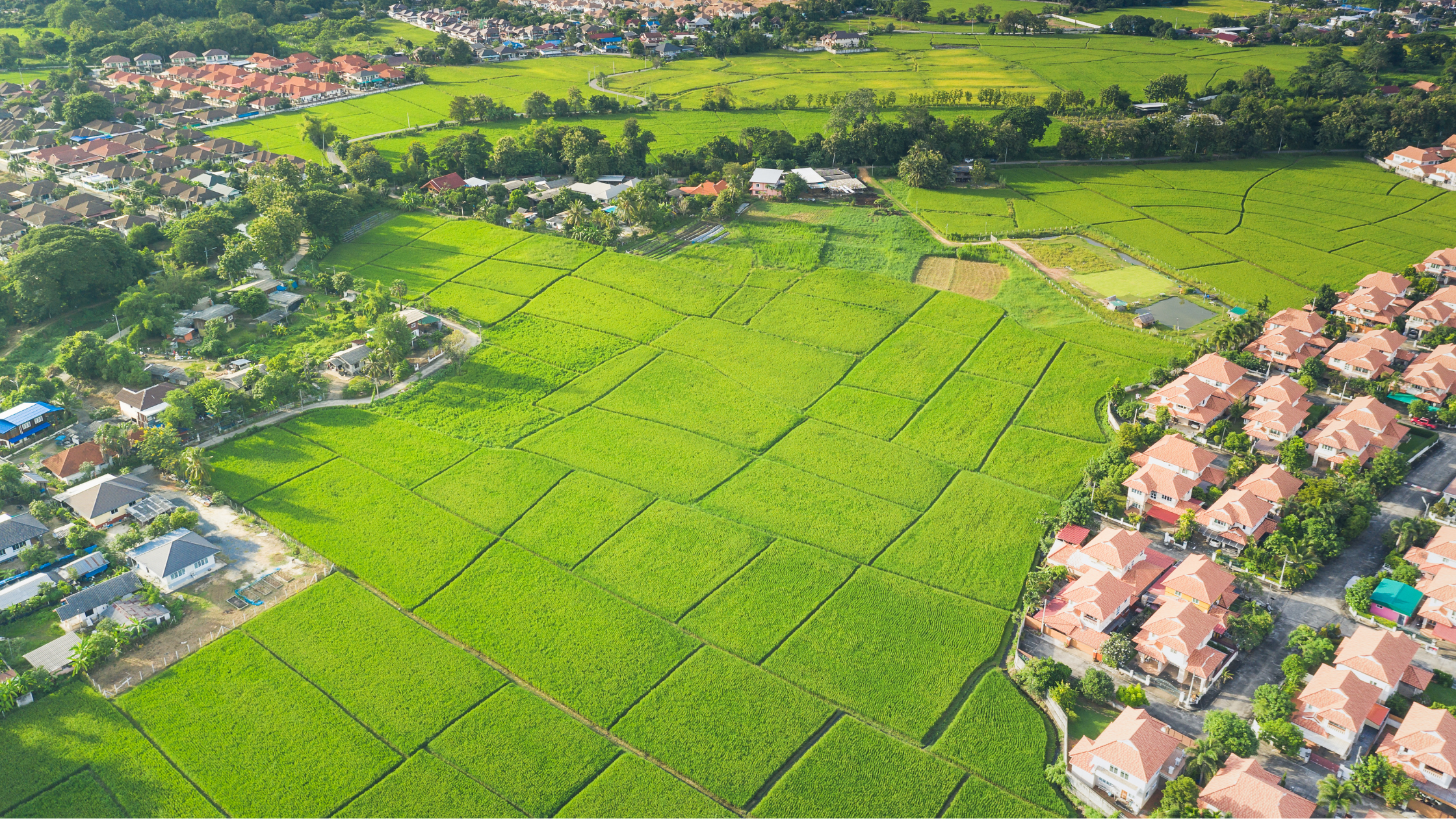Financing plays a significant role when it comes to real estate investment. You need a good amount of available funding to close the deal and avail the opportunity in the best ways possible.
No doubt, purchasing a vacant plot seems like an exciting prospect for better growth in the real estate industry, but it often requires land loans.
Herein, land loans are popular financing options for buying a plot. Similar to mortgages, they can be obtained through a lender or a banking institution that will evaluate land value and credit history to determine if you are an eligible buyer.
An important point to remember is that land loans can be risky for lenders as they will not get any home as collateral.
This is why it’s important to be prepared for higher interest rates and a down payment for securing a loan to buy the land. If you need to learn about the process and other essentials, read for proper insights.
How to get a land loan?
The process of getting land loans is very similar to that of a traditional mortgage. However, it is crucial to remember that different land loan types will have varying qualification needs.
But one thing that remains similar in most is that you generally will require excellent credit, a good debt-to-income ratio of about 30 to 40%, and consistent income flow.
There are strict qualification requirements here because, compared to construction property, land investment tends to be a lot riskier.
Land loans are generally short-term financing options of 2 to 5 years followed by a balloon payment compared to the typical 15 to 30-year terms you get on a traditional mortgage.
Further, longer terms are available in case of special requirements, especially if you will use the land to build a home.
Different types of land loans
Depending on the area where you wish to purchase the land, the option and the process will vary greatly. Here are the common types of land loans you can consider.
1. Raw land loan
Raw land is the property that has no improvement and is not cultivated at all, such as a home or any other form of constructed element.
Buying raw land often seems appealing as it is cheaper and offers the flexibility to do what you want to do with it according to local laws.
On the other hand, raw land can be risky for lenders as it is likely to take longer to develop. A solid development plan, a substantial down payment, and excellent credit can work great.
But remember, sometimes you require up to 50% of the down payment. It makes it easier to get a loan for raw land.
2. Lot land loan
In contrast to the raw land, lot land already has some infrastructure, such as water and electricity, and is usually preferred for residential construction in developed areas.
A significant benefit of lot land over raw land is that lenders will have more comfort offering land loans as the upfront cost here will often be less.
But you still need to bring in 10% to 20% of the down payment, and here, the term can stretch for up to 20 years.
3. Construction loans
A construction loan herein is the type of loan that is intended to help in funding construction projects.
In contrast to the standard mortgage, a construction loan term will last only as long as the construction process before it converts into a standard 15 to 30-year mortgage.
Once the lender approves the loan, he will pay the amount at each construction phase.
Remember, there are various variables and more risk for the lenders when constructing a home. Thus, construction loans typically require a credit score of 680 or higher.
Also, it needs a down payment of 20% and highly detailed project plans, which include everything from budget to estimated schedule.
It might seem daunting, but a stable income, a high credit score, and a low DTI ratio will help you secure a more competitive rate on your construction loan.
Land loan interest rates
The land loans, no doubt, are often risky for the lenders. This is why the interest rate here will be higher than any home loan interest rate.
You are more likely to qualify for a lower rate with a lower DTI ratio and a higher credit score.
Here is an idea of the interest rate for the land loan rates.
- For Lot land, a 10-year fixed mortgage interest will cost between 4% and 5%. Meanwhile, for a 30-year fixed mortgage, the interest rate would be 4.65% to 25.65%.
- In the case of raw or recreational land, the 10-year fixed mortgage rate would be 4.25 to 5.25%. While in the case of 30 30-year fixed mortgage, the interest would be 4.90% to 5.90%.
How to choose a land site?
The lenders are more interested and attracted to the properties that require less funding or are less risky. Here are the factors that will help you qualify for land loans easily.
1. Surveying and Boundaries
A survey here is quite crucial to provide the lender with potential legal headaches that can arise in the future or to provide a definitive picture of exactly what land will be yours.
You will need to complete a survey before you choose to buy the land to ensure you know the boundaries of your land.
Remember that most lenders will require a completed American Land Title Association boundary survey before they approve any of your loans.
2. Utilities
You must pay attention to every minor detail. You must see if the land can access utilities such as paved roads, sewage, electricity, and water.
While most of the land will likely have access to most utilities, if you still need to include any or purchasing, make sure you have, or you can obtain the budget-required land space and permits and abide by any local and state ordinance and health codes.
3. Wildlife and environmental factors
Do your research and ensure that you are not planning to build on land that the Fish and Wildlife Service protects, or else you might get into trouble.
If you build something in an area with endangered species of wildlife or plants, things can get tricky.
Each state often has a longer list of protected animals and plants. So make sure you go through it before you close the deal. Note there is good news, as you can qualify for government grants intended to help endangered species.
Still, it would help if you were careful enough to support the environment and ensure less harm during the construction project.
Ultimately, you need to be aware of any environmental concerns to plan accordingly and continue the construction without any disturbance or delay.
4. Zoning and restrictions
Depending on the plans for your land, you will need to ensure the zoning allows you to complete your project legally. If you are buying land for building a house, be sure your land is zoned for residential use.
Also, it would help if you read up on any other unique rules that might be there for your land and what you can and cannot do.
Remember that instead of suffering later, you must do thorough research and get a detailed estimate or idea of the property you plan to invest in.
It is always a good idea to do due diligence, irrespective of the kind of property you are purchasing.
Also, inquire about the government rules and regulations of the area so that you are not breaking any law and there won’t be any legal complications whatsoever.
5. Future changes
When purchasing a property, consider the future changes near the area and in that specific city or space.
For instance, you need to see if there are any construction plans in work near the land, such as the construction of a school, a new highway, or a shopping center.
The structure of new facilities can significantly impact the value of the property. So consider such considerations and research well to ensure that the land meets your needs before you finalize the deal.
Conclusion
Land loans offer an excellent way for investors to continue purchasing property without any difficulty. If you are looking for the same, consider trusting Private Capital Investors.
They have a team of experienced professionals who will bring forward great deals for you.
Regardless of your requirements, the professionals will ensure you get the financing quickly and at a lower interest rate. Contact them today for timely support.





